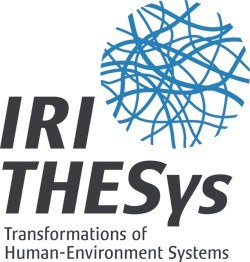At the Melting Point. How can the 2°C climate target be achieved in a just and sustainable way?
A heated debate about the challenge to limit global warming to a maximum of 2° C above pre-industrial levels.
The effects of climate change have long become perceptible: melting of the poles, heat waves and droughts, right up to harvest losses or increase in extreme weather conditions. Human beings are the cause for this, artificially fuelling the earth’s natural greenhouse effect with their consumption of resources for the sake of the economy, transport and private households. Furthermore, factory fumes and exhaust fumes from daily commuter traffic pollute the urban air and put a strain on the health of its inhabitants. That is why we must take action, now.
At the Paris Climate Change Conference (COP21) in December 2015, 195 countries signed a global climate agreement for the first time. It provides for limiting global warming to a maximum of 2° C above pre-industrial levels. The climate target is also one of the 17 sustainable development goals (SDGs) of the United Nations, which is to be implemented within the Agenda 2030 for Sustainable Development as quickly as possible.
There is no simple answer to how this target can be reached. The complexity of the problem rather necessitates bringing different approaches together. The Integrative Research Institute on Transformations of Human-Environment Systems (IRI THESys) at Humboldt-Universität zu Berlin brings together scholars of natural sciences, social sciences and humanities, in order to pursue cross-disciplinary research on and for global sustainability. Their research questions arise against the backdrop of a new era, in which human beings have become the strongest influencing factor on the planet. Population growth, global climate and land-use changes, dramatic species decline, and unequal distribution all require a worldwide social transformation, though its concrete realisation is yet largely unclear. The question as to how human well-being and justice can be achieved without exceeding the limits of the planet in the process will therefore be at the centre of the debate.
A discussion will take place during the Next Frontier Debate with the IRI THESys members Christoph Schneider, Professor of Climate Geography, Kirsten Meyer, Professor of Practical Philosophy, and Hermann Lotze-Campen, Professor of Sustainable Use of Land and Climate Change, as well as researchers of the Potsdam-Institute for Climate Impact Research, and Marie-Luise Beck, Managing Director of the German Climate Consortium.
Peter Frensch, Vice President for Research of the Humboldt-Universität zu Berlin, will open the event. The panel discussion will be facilitated by Daniel Münter, scientific journalist. The event will be held in German with simultaneous translation into English.
Thursday, 9 November 2017
6.00–8.00 pm
Festsaal der Humboldt-Universität zu Berlin
Luisenstr. 56, 10117 Berlin
Registration is appreciated by email until 8 November 2017: berlinscienceweek@hu-berlin.de



